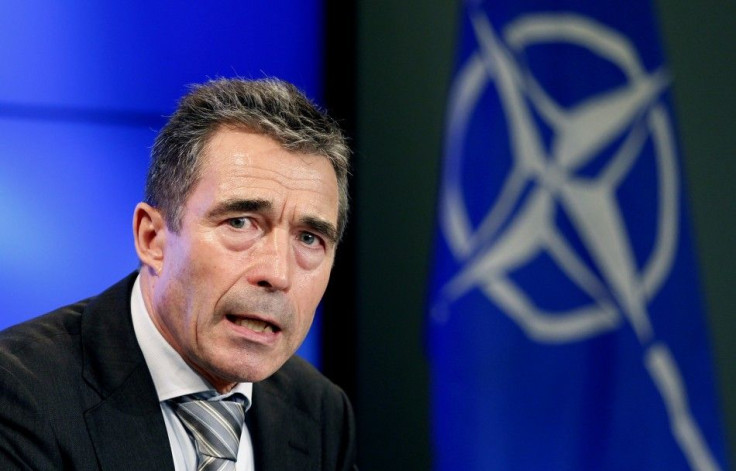NATO To Deploy Patriot Missiles In Turkey, Warns Syria Over Use Of Chemical Weapons

NATO announced on Tuesday that it had agreed to deploy Patriot missiles in Turkey.
Emerging from a meeting with Russian officials, NATO Secretary-General Anders Fogh Rasmussen told the press it had discussed Turkey's request "to help defend the population and territory of Turkey and help de-escalate the crisis along NATO's border.
"NATO's decision is clear: Any deployment would be to protect Turkey. It will be purely defensive in nature. It will in no way support a no-fly zone or any offensive operation.
"It is a clear signal of NATO solidarity," Rasmussen said.
There are so far no numbers available on how many missiles will be sent to Turkey. Today's Zaman, a Turkish daily, said that Turkish ministers were seeking between 10 and 20 missiles, but the Hürriyet Daily News said it was likely only three of four systems would be available because "the missile threat from Syria was not big enough to substantiate such a deployment."
Rasmussen also threw his voice into the growing chorus that includes U.S. President Barack Obama and the French Foreign Ministry, warning Syrian President Bashar al-Assad that any use of chemical weapons by the government would lead to dire consequences.
"The Syrian stockpiles of chemical weapons are a matter of great concern," Rasmussen said. "The possible use of chemical weapons would be completely unacceptable to the whole international community and and I would expect an immediate reaction from the international community."
The Syrian government has flatly denied it has even considered using chemical weapons, but U.S. officials say there are "worrying signs" otherwise, CNN reported.
One U.S. official said that intelligence obtained over the weekend showed Syrian forces had started to combine chemicals to make sarin gas, a colorless, odorless nerve agent that can be used to fill artillery shells. Sarin is classified as a weapon of mass destruction by the U.N.
As of Monday, almost 200 more people were killed in the fighting in Syria, the U.K.-based Syrian Observatory for Human Rights said.
© Copyright IBTimes 2024. All rights reserved.






















